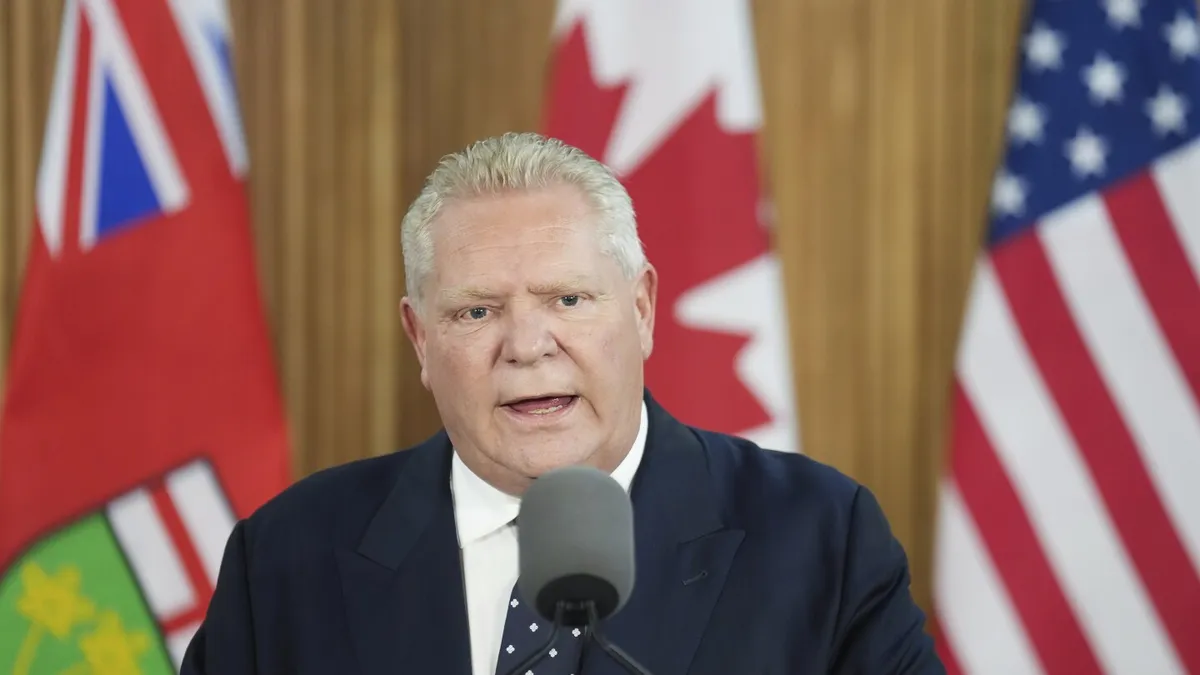
In a significant move in response to escalating tensions from the U.S. trade war, Ontario's Premier Doug Ford announced that starting Monday, the province will impose a 25% surcharge on electricity supplied to 1.5 million Americans. This decision affects customers in states such as Minnesota, New York, and Michigan, marking a bold stance against U.S. President Donald Trump's trade policies.
During a press conference in Toronto, Premier Ford stated, “I will not hesitate to increase this charge. If the United States escalates, I will not hesitate to shut the electricity off completely.” He expressed his sympathy for American citizens who are not responsible for this trade conflict, pinpointing President Trump as the catalyst behind the tensions. Ford emphasized that despite a one-month reprieve from Trump, the tariff on electricity would remain in place, highlighting that such pauses only create further uncertainty.
The Ontario government anticipates that this new surcharge will generate significant revenue, estimated between CA$300,000 ($208,000) and CA$400,000 ($277,000) per day. This revenue is earmarked to support Ontario's workers, families, and businesses. Each affected American household could see an increase of approximately CA$100 ($69) per month on their electricity bills due to this surcharge.
The recent developments come in the wake of President Trump's new trade war, which he initiated by imposing tariffs on the three largest trading partners of the U.S. This move triggered immediate retaliation from Canada, Mexico, and China, causing market instability. Although Trump announced a temporary postponement of certain tariffs, Premier Ford remains resolute, stating, “Until these tariffs are off the table, until the threat of tariffs is gone for good, Ontario will not relent.”
Ford pointed out that Trump's unpredictable stance could have severe repercussions for Ontario's economy, particularly for its auto sector, which is a significant part of Canada's industrial landscape. Trump has urged U.S. automakers to relocate production from Canada and Mexico back to the United States, a move that could destabilize Ontario’s economic foundation.
In light of the ongoing trade war, Premier Ford has suggested that the Canadian province of Alberta should consider implementing an export tax on oil. Alberta currently exports 4.3 million barrels of oil daily to the U.S., and Ford believes such a move could significantly impact American consumers. “If all of a sudden their gas prices go up a dollar a gallon, they will lose their minds,” he remarked, emphasizing the interconnectedness of the economies.
Despite Trump's claims that the U.S. does not need Canada, the reality tells a different story. Nearly 25% of the oil consumed daily in the U.S. comes from Canada, with Canada supplying about 60% of U.S. crude oil imports and 85% of U.S. electricity imports. Moreover, Canada is a critical supplier of steel, aluminum, and uranium, along with having numerous minerals that are crucial for U.S. national security.
The growing tensions between Ontario and the U.S. highlight the delicate balance of trade relationships. As Premier Ford implements these new measures, the effects on both sides of the border will continue to evolve, bringing into focus the broader implications of the ongoing trade war initiated by President Trump. As the situation develops, both Canadian and American citizens are left to navigate the complexities of these economic challenges.